
Introduction
Brian Cox was born in Dundee in 1946 and has been a star of stage and screen for decades. His stage roles include Titus Andronicus and King Lear, and his film and TV credits include Sharpe, Manhunter (in which he played the first on-screen Hannibal Lecter), Rob Roy, Braveheart, Troy, X2: X-Men United, Churchill, and Succession. At the time this interview was conducted over Zoom (21 August 2024), Brian was in Glasgow about to start work directing on a new project. He couldn’t tell me much about this, except that it was something he had wanted to do for a very long time.
Although we were pressed for time and the discussion could have gone on for much longer and in many directions, we covered a lot of ground, including Brian’s views on religion, acting as a form of humanism, the conflict in Gaza, sectarianism in Glasgow, Johnny Depp, Ian McKellen, Irn Bru addiction, and Scottish independence. All of this and more appears in the edited transcript of (and selected audio excerpts from) our conversation below.
Interview
Daniel James Sharp: Earlier this year, you caused a bit of a stir by labelling the Bible ‘one of the worst books ever’ and full of ‘propaganda and lies.’ But you also acknowledged the need people have for comfort and consolation. For you, though, theatre is the ‘one true church…the church of humanity.’ Is acting a form of humanism, then?
Brian Cox: Yes. I don’t believe in churches, but if you need a church, theatre is the church of humanity. Acting is absolutely humanism. It’s based on who people are, what their belief systems are, how they’re plagued by their belief systems, and how they have to reconcile themselves to these belief systems—and when you think about it, in my view, that means reconciling themselves to something which is completely fictitious.
It’s understandable that people need to believe in something because we live in an age where we’re so confused. What nobody ever talks about is where we are in our own state of evolution, because we’re clearly not fully evolved beings. If we were, we wouldn’t be doing what we’re doing again and again. We wouldn’t have a Putin situation. We wouldn’t have a Netanyahu situation. I feel that we have to be evolved. We are evolving, but we are not there yet. We’re a long way off, and we are in danger of destroying ourselves because of our own stupidity. At the root of a lot of our problems is tribalism. Am I Islamic? Am I Jewish? Etcetera.
The Jews were treated appallingly by Nazi Germany, and they then founded their own state. But now they have all sorts of problems there. There’s a great division among Jewry, including some great friends of mine, about what is happening in Gaza and elsewhere right now. Because of what happened on 7 October last year, a lot of them are very afraid, and we have to understand that. But the genocide that is being committed is inexcusable on any level, and you have to put it down to the extreme right-wing Jewish government—which is not wholly representative of the Jewish people. That’s very important to note. A lot of the Jewish people do not like what’s going on in Gaza. And anti-Semitism is not the answer, of course. Anti-Semitism is what gave rise to fascism and we have to be very careful about that.
That is just one example of the danger of being beholden to belief systems. They trap us, they don’t liberate us. They may give us comfort, they may give us what they call faith, but at the end of the day, they are not helpful. They are not ultimately helpful to the human spirit, at all.
When it comes to these situations, I always feel for the children. They live in these conditions created by the mistakes of adults. I just cannot stand what’s happened to the children in Gaza.
Just on the point about Israel and Palestine, I think it is also worth keeping in mind that it’s the same with the Palestinians as it is in Israel: Hamas is not necessarily representative of the Palestinians as a whole.
Exactly, nor are the Yasser Arafats necessarily representative. It’s awful how they are using Gaza for their own ends. When it comes to these situations, I always feel for the children. They live in these conditions created by the mistakes of adults. I just cannot stand what’s happened to the children in Gaza. How many children have been killed? A disproportionate number of children have been killed because of these adults’ mistakes.
I don’t in any way excuse Hamas at all. I do not excuse people who hide behind law-abiding citizens, innocents, because of their own disharmony with the system. Yes, I understand that Palestine has suffered a lot of persecution—psychological persecution as much as anything else—but I don’t excuse Hamas. I certainly don’t excuse what happened on 7 October, not at all. That was horrendous.
But what has happened in Palestine as a result is also just appalling. This is where belief systems do not support you. They support your view over that view, but they’re not about harmony.
I compare it with Glasgow, where I am right now. If you come to Glasgow, it’s quite ecumenical with its Islamic and Catholic populations. It’s quite free. Of course, it has its streaks of racism, and that is always going to be there—that fear that man has about his fellow that he can’t quite understand. But on the whole, Glasgow is doing well.
I feel that we’re in such a state of setback at the moment. We are failing to understand how we’re evolving. We’re going through such horrific things at the moment, and the thing that stops us from evolving is being stuck in these belief systems.
Could you explain a little more what you mean by these external belief systems being inimical to the human spirit? What is the human spirit?
What is the notion of a freethinker? It means a person who thinks freely, without any trammelling of any kind. Their thinking is of a sense of liberation, the liberation of the human spirit (their actions might be a different matter, of course). I’m not a classified ‘freethinker’, but that’s what I would have thought a freethinker is. I rather admire and respect that.
I’ve been thinking about why I’m talking to a freethinking magazine. I think because there is a problem at the moment with the cancel culture that we live under. There’s not a lot of free thinking going around. … Cancel culture is offensive and damaging to the human spirit.
I believe in the human spirit. We don’t understand our own mystery. We try to codify it. ‘Say your prayers and it’ll all get better and then you’ll have something at the end of your life.’ But that’s a mystery, and nobody knows anything about that. All we know about is what we’ve got to deal with now, with our two legs, two arms, and two hands, and a head that can, perhaps, function. I feel quite passionate about that. We should give it the respect it deserves and not fall into these systems.
My sister was a strong Catholic. She cleaned the church. But at the end of the day, when she was dying, I said to her, ‘Where do you think you’re going to end up?’ And she said, ‘It doesn’t really matter, does it?’ That was her conclusion after 90-odd years of life. And that’s the truth. It doesn’t really matter when it comes to those elements which are definable, but it does matter to something else that we don’t even know about.
I did want to ask a little about your background. You’re from a working-class Scots-Irish Catholic family. And you’re in Glasgow right now, which, historically, was torn apart by sectarianism.
Oh yes, Glasgow has always been sectarian, because of the Orange Order. The Glorious Twelfth. ‘Our father knew the Rome of old and evil is thy name…And on the Twelfth, I love to wear the sash my father wore.’ [Lines from Protestant anti-Catholic songs, the latter celebrating the ‘Glorious Twelfth’, the victory of the Protestant King William III over the deposed Catholic King James II at the Battle of the Boyne in 1690.] All in service of William of Orange, and what was he, except a good Proddie?
The Catholics are good survivors because they’ve been hacked about ad infinitum. But there are also the acts that have been committed under the guise of Catholicism—the [Magdalene Laundries in Ireland], for example, and all those poor, misbegotten women who worked for them—so there is a lot of questioning there and nobody is exempt.
And my sister, in the end, said that it doesn’t really matter. What does matter? We matter. Not our religion, not our faith, not our belief systems. We matter. Let’s try and understand who we are as a herd animal and as an individual animal. But we don’t even go there. Instead, we come up with all these stories that justify certain things.
And art is a way to understand ourselves.
Yes. Art is the way I do that. Art is a way of looking at the world, and of looking at everybody in the world. From a dramatic point of view, we are looking at how human beings behave. What screws them up? What are their ambitions? What do they want? Why do they want it? Is it necessary? No, it’s not. Well then, why do they want it? Is it some kind of neurotic force at work or is it something else? That’s what actors do when we work on a role, we’re examining what’s going on. And that’s where all the belief systems can come into it. ‘Oh, I see, he’s Jewish, he’s got that kind of belief. Oh, but he doesn’t like being Jewish. Why does he not like that?’ Do you see what I mean? You’re creating an exploration of the human psyche, which to me is the great gift of acting.
Who are your favourite actors?
Spencer Tracy, for me, was the greatest screen actor ever, by far. He was extraordinary. He was very tormented, very Catholic, very guilt-ridden, but a great artist. The ease and the flawlessness and the way he negotiates stuff—tremendous. And he and [Katharine] Hepburn were extraordinary together. So, I think Hepburn is another of my favourite actors.
Another is Cary Grant, who was a construct of a personality because of his horrific background, and he played all these wonderful, mysterious kinds of characters who just said, ‘I really don’t give a fuck.’ And of course, there’s [Marlon] Brando and Jimmy Dean, even though he didn’t live all that long.
There are a few actors who grew better over time. Paul Newman got infinitely better as an actor as he got older. As a young man, he was a bit more confused.
It’s a great craft, acting. And it is a craft. It’s a craft of human sensibility. Where are we coming from? Why are we doing it? What is it? What does it mean? What are we trying to achieve? And the truth is, we don’t know. We don’t know, because we’ve got all this other stuff that we have to deal with, that we’ve got to get through.
That’s why I was interested in talking to somebody from a freethinking magazine. What is free thinking, and how free can thought really be these days? Or is there some impediment that makes it non-viable to think freely?
I think it’s difficult to think freely at the best of times, but especially now. There’s so much pressure to conform to certain standards and ideologies.
That’s right. And that’s why you’ve got to say, ‘Fuck it! I’m going to think freely.’ When the pressure is great, you don’t give up. It reinforces who you are. It looks as if you’re in doubt, but you’re dealing with a shit storm of meteors coming at you, and it’s very important to be able to think freely. I’m grateful because I think I’ve been able to do that for most of my life, and I didn’t even know I was doing it, and I did it because I didn’t have the usual constricts of family and parents and what have you.
‘Fuck it, think freely!’ should be our new motto. You are well known for speaking your mind about politics, religion, and even fellow actors.
I’ve got to shut up about fellow actors. I’m a bit naughty about that. It’s a hard game, and I sort of regret saying anything. And even if I did say something, it wasn’t meant as a damning criticism. It’s a question of taste. Not everybody likes everything other people do. I sort of regret calling Johnny Depp ‘so overblown, so overrated’ in my autobiography because he is fine in many ways. There are some things he isn’t fine at but, on the whole, he’s fine. He’s certainly very popular. It’s an imperious thing of me to do, to shoot on about somebody like that, because it’s a tough job.
The best actors are children, and the greatest actors are the ones who can still be doing it at my age. I’m not saying I’m the greatest, just to be clear, but you know what I mean. I have great respect for people of my generation who are still doing it.
In your autobiography, you talk about your and Ian McKellen’s different philosophies or styles of acting. I have a lot of admiration for both of you as actors.
I love Ian, I really do, and I love him even more as he’s got older. He’s just a different style from me and naturally, I’m going to prefer my style, but that’s not about saying I’m any better. I’m not. I just prefer the way I work to the way he works.
But he is a very special man in so many ways. He’s been a great champion, especially in the homosexual rights movement, standing up to Clause 28 and everything. He’s done phenomenal things in that way, so I have total respect for him.
He’s a very sound man, in terms of his politics. I’ll still argue about the acting a wee bit. But as a man, I love him. We’ve known each other for a long time. We were neighbours recently. When I was doing the play Long Day’s Journey Into Night, he was next door doing Falstaff, where he sadly fell off the stage. I think that was a big shock for him.
I was impressed that he was back on stage so quickly after that fall.
Well, they gave that out, but he didn’t go back to do the job because it was too dangerous. The production should have taken into account the danger of being that far out on the stage. The upside of the accident is that it woke something in Ian. A shock like that is bound to wake something in you. He’s considerable, he’s absolutely considerable. He’s continued on his path and you can’t help but respect him.
That’s the nice thing about getting older. You’re not beating tambourines anymore. You’re actually looking at people and saying, ‘Oh, well, I disagree. But my God! I respect that person.’
It’s also great for viewers and audiences to have these different styles of acting.
Of course.
Actors more than anything have an acute sensitivity to politics.
What do you make of the critique that actors should refrain from intervening in politics and the like—that they should stay in their lane?
I think that’s a nonsense. Actors more than anything have an acute sensitivity to politics. If you’ve been in the game, you know that you can’t depend on it. It’s very fleeting.
It took me a long time to come around to speaking up about things like Scottish independence, which I’m very interested in. I have never liked the name ‘Scottish National Party’, but I love the notion of the independent nature of Scotland.
But I think that what we really require in these islands is federalism. We need each country to be self-standing on its own. These islands are a community. You can’t just say, ‘Oh, there’s Scotland, forget about the rest.’
Actors have a sense of that, of how they belong, and they also have a sense of not belonging. When you don’t belong in any one place, you get a broad view of what things are.
Oh, you’re drinking Irn Bru!
[Cue Irn Bru interlude. See audio excerpt.]
I think that actors are very right to talk about stuff. We also have to talk about politics as it relates to our work. I think some of the practices that are happening to young actors now are despicable. Things like self-taping, where they’ve got to be their own technician and so on. They do these tapes and nobody even responds to them at the end of it. I find that appalling, so I will speak up about that, and I wish some of my fellow actors of my generation would also speak up about it. It’s our responsibility as the old regime of actors to say that what is happening to our young actors is not right. It’s not right that they lose the intimacy of a casting director.
Some casting directors don’t work that way, of course. There’s a great casting director in Scotland, Orla O’Connor, who doesn’t do that. She believes in the relationship between people. But there’s a lot who do work like that. They used the excuse of Covid, and now they use the excuse of there being too many actors, and I say, that doesn’t matter. Common respect costs nothing.
Do you think practices like self-taping will affect the quality of acting in future?
I don’t think so. Actors are survivors, and you’ll get the talent no matter what. It’s just the battering that you get. It’s very wearing after a while, when you’re constantly not getting any response for what you’re doing. Young actors need some kind of response, even if they’re told they’re bad. And usually, they’re not bad, they just don’t fit into a particular project. But you’ve got to tell them, ‘Sorry, you’re not right for this project, and I’ll explain to you why you’re not right for it.’
Going back to politics, by advocating federalism, have you moved away from Scottish independence?
No, not at all. I think federalism is the development of independence. We need to have a vision of how we live within these islands. We’re still a community, we’re still an island, like it or not. The border is a piece of land that’s flexible either way. At one point lots of people in the north of England were keen to be part of Scottish independence.
I’m still pro-independence. I just think we’ve got to have a broader view of it, and federalism does that. We’re still very class-conscious in this country. I want to move away from that, to have a vision of what we want our country to be.
We have to think about what an independent spirit means. To me, it means shaking off what we’ve suffered and endured for centuries. And we did it to ourselves, the Scots: we sold our Parliament out from under our feet in 1707 and became part of the United Kingdom. But that made us second-class in a way. For example, why did Prince William only go to see England at the Euros? That’s not very ‘United Kingdom’, is it? I think there’s still that attitude of, ‘Oh, the Scots are so tiresome.’
Now, coming up to Scotland again, I see a kind of depression. It’s very difficult to describe but it’s there and it’s to do with permanently being defeated. We don’t need that.
When I was young, I couldn’t give a fuck about any of this. Now that I’m getting older, though, I think, ‘Hang on a second.’ In the project that I’m working on right now, my job is to honour the unity and the talent I see. People are delivering amazing work. And I want people to see that this is what Scotland can do. We can create stuff at a very high artistic level. But we don’t get that right now, we get reduced constantly. Our own culture is much older and more consistent than any other culture in these islands, because of the Celts that we all are.
When I was younger, I was too ambitious. I didn’t care about any of this stuff. I just cared about me, but after a while, you get sick of that. And now, coming up to Scotland again, I see a kind of depression. It’s very difficult to describe but it’s there and it’s to do with permanently being defeated. We don’t need that. We can live through our defeat and learn from it. It shouldn’t make us depressed. It should do the opposite. It should free us more. It should make us think, ‘On, on.’ That’s how we’ve survived for centuries. We haven’t been browbeaten by it. It should make us think that maybe we could actually decide things for ourselves. That’s all I’m asking.
Keir Starmer is absolutely against the breakup of the Union. It’ll never happen under a Labour government. He’s a stupid man—no, that’s not right, I’ll withdraw that. He’s very intelligent, but he’s very unspontaneous as a man. He’s limited in that sense. He doesn’t understand people’s feelings in Scotland and how necessary it is to nourish them, to make them blossom, to make them bloom.
We’ve become so thwarted so much of the time, and that makes me sad because it is unnecessary. That’s why I believe in a United Federation, because I do think one of the things we are good at in Scotland is being very kind and considerate to others. All of those riots in England [in August], that would never happen in Scotland. We don’t do that. That’s not who we are. We are inclusive of our brothers and sisters who are Sikh and Islamic and so on. Of course, there will always be the headbangers. There will always be those who are afraid, who are intrinsically racist. You can’t avoid that. That’s something underdeveloped in the human spirit again. But on the whole, we’re really rather good at being inclusive in Scotland.
For example, there was a meeting in Glasgow recently and what happened was quite stunning. About 30 right-wing people turned up. And against them you had the Indian, Irish Catholic, Scottish Presbyterian, and other communities all coming together. I think that is Scotland’s great gift. We’re good hosts. And that generosity of spirit is what I think could make us the nation that we should become.
We’re out of time but thank you very much for talking to me. And good luck with your new project.
My pleasure, it’s been nice to talk to you. Thank you very much. Take care.
Related reading
‘Nature is super enough, thank you very much!’: interview with Frank Turner, by Daniel James Sharp
Israel’s war on Gaza is a war on the Palestinian people, by Zwan Mahmod
Is the Israel-Palestine conflict fundamentally a nationalist, not a religious, war? by Ralph Leonard
Religion and the Arab-Israeli conflict, by Kunwar Khuldune Shahid
Bloodshed in Gaza: Islamists, leftist ideologues, and the prospects of a two-state solution, by Kunwar Khuldune Shahid
Young, radical and morally confused, by Gerfried Ambrosch
Britain’s liberal imam: Interview with Taj Hargey, by Emma Park
Can Religion Save Humanity? Part One, by Brian Victoria
Can Religion Save Humanity? Part Two: Killing Commies for Christ, by Brian Victoria
The far right and ex-Muslims: ‘The enemy of my enemy is not my friend’, by Sara Al-Ruqaishi
Reflections on the far right riots: a predictable wave of violence, by Khadija Khan
Free speech and the ‘Farage riots’, by Noel Yaxley


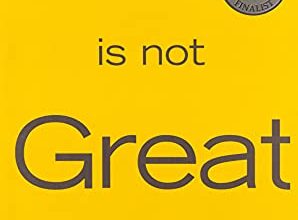
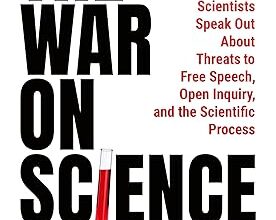
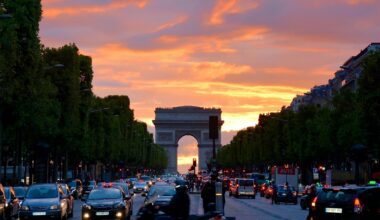
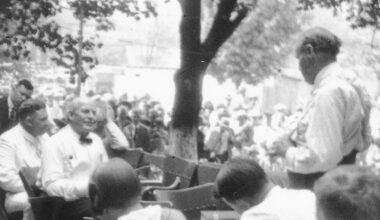
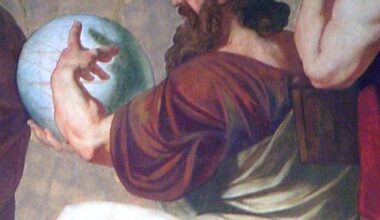
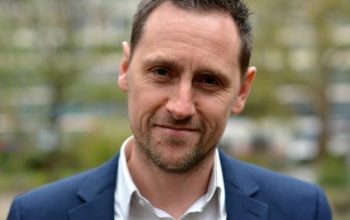
1 comment
“Keir Starmer is absolutely against the breakup of the Union. It’ll never happen under a Labour government. ….. [H]e’s very unspontaneous as a man. He’s limited in that sense. He doesn’t understand people’s feelings in Scotland and how necessary it is to nourish them, to make them blossom, to make them bloom.”
I think we have seen what can happen with a PM who acts spontaneously and it was not a pleasant experience for most of us. I do not expect any political party to advocate disuniting the kingdom as it would probably scuttle any hope they might have of forming a government.
“But I think that what we really require in these islands is federalism. We need each country to be self-standing on its own. These islands are a community. You can’t just say, ‘Oh, there’s Scotland, forget about the rest.’”
As for national assemblies in the UK, there are: a Scottish Parliament, a Welsh Senedd and a Northern Ireland Assembly (on-and-off). Is there anything missing?
Incidentally:
“All of those riots in England [in August], that would never happen in Scotland. We don’t do that. That’s not who we are. We are inclusive of our brothers and sisters who are Sikh and Islamic and so on.”
https://www.bbc.co.uk/news/articles/c20r7wzke97o
Your email address will not be published. Comments are subject to our Community Guidelines. Required fields are marked *
Donate